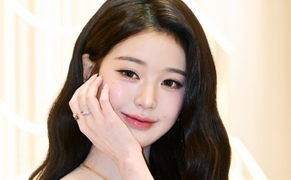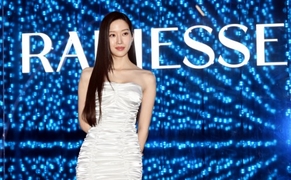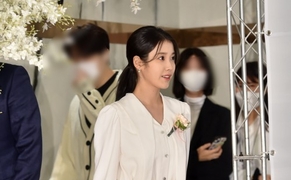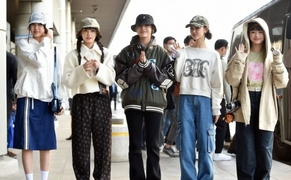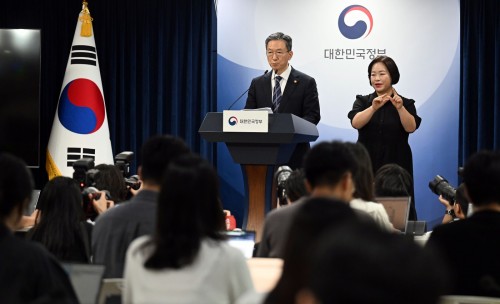 |
| Justice Minister Chung Sung-ho announces the list of those granted Liberation Day special pardons during a press briefing at the government complex in Jongno District, Seoul, on August 11, following an extraordinary Cabinet meeting presided over by President Lee Jae-myung. / Park Sung-il |
President Lee Jae-myung’s first Liberation Day special pardon has drawn controversy after it included a large number of political figures from both the ruling and opposition camps.
The pardon list features Cho Kuk, former leader of the Rebuilding Korea Party, his wife and former Dongyang University professor Jung Kyung-shim, former Democratic Party lawmakers Choi Kang-wook and Youn Mee-hyang, and former Seoul education chief Cho Hee-yeon. Opposition figures such as Hong Moon-jong, a former Saenuri Party (now People Power Party) lawmaker, and former PPP lawmaker Jung Chan-min were also included.
The government said on August 11 that it will grant special pardons to 2,188 people — including politicians, business leaders, and labor figures — effective August 15. In addition, 834,499 people subject to administrative penalties such as driver’s license suspensions will receive special clemency.
A total of 27 politicians, including members of both blocs, will be pardoned and reinstated. Cho Kuk, who had been serving a sentence for college admissions-related corruption, will have the remainder of his sentence waived and his political rights restored, removing legal barriers to his future political activities.
Others, including Choi Kang-wook, Youn Mee-hyang, Cho Hee-yeon, and Jung Kyung-shim, will be pardoned and reinstated. Lawmakers and former officials aligned with the pro-Moon Jae-in faction — such as Rep. Yoon Kun-young, former Seongnam mayor Eun Soo-mi, former Environment Minister Kim Eun-kyung, and former Health Minister Moon Hyung-pyo — are also on the reinstatement list.
Among business leaders, Choi Shin-won, former chairman of SK Networks, will be pardoned and reinstated. Former Samsung Group executives Choi Gee-sung and Jang Choong-ki — convicted in connection with the “state capture” scandal — are among those reinstated.
Critics have labeled the move a “reward pardon,” noting that successive administrations have repeatedly granted special pardons to political figures. This has fueled calls to restrict the president’s constitutional power to pardon.
Justice Minister Chung Sung-ho defended the decision, saying, “This special pardon is, above all, a response to the era’s demand for national unity. It aims to create an opportunity for reconciliation and to revitalize the struggling economy amid global uncertainties.”
He added, “Through the first pardon since the launch of the People’s Sovereignty Government, we hope to overcome social divisions and pave the way for national integration.”
Most Read
-
1
-
2
-
3
-
4
-
5
-
6
-
7

















